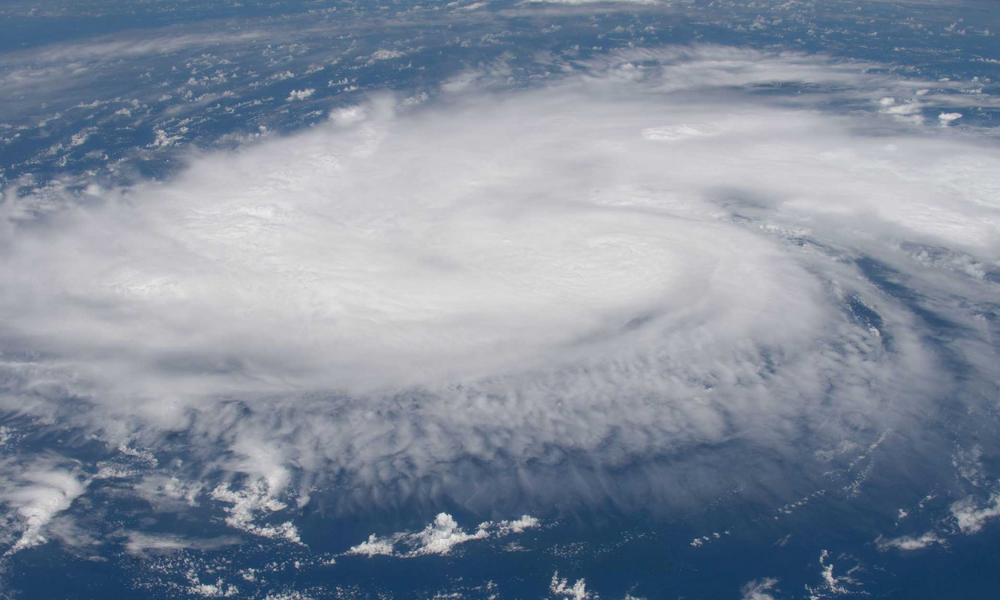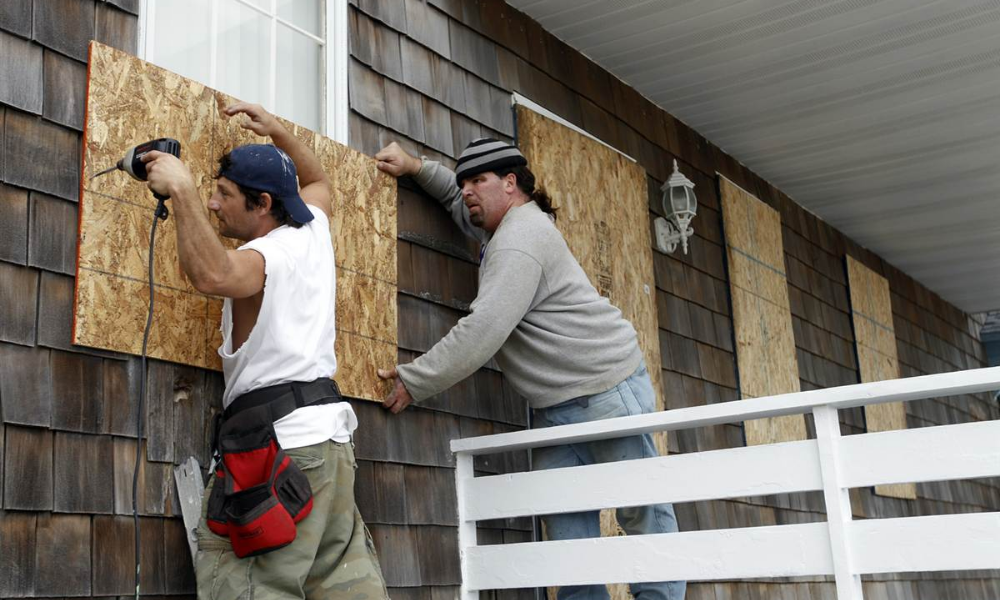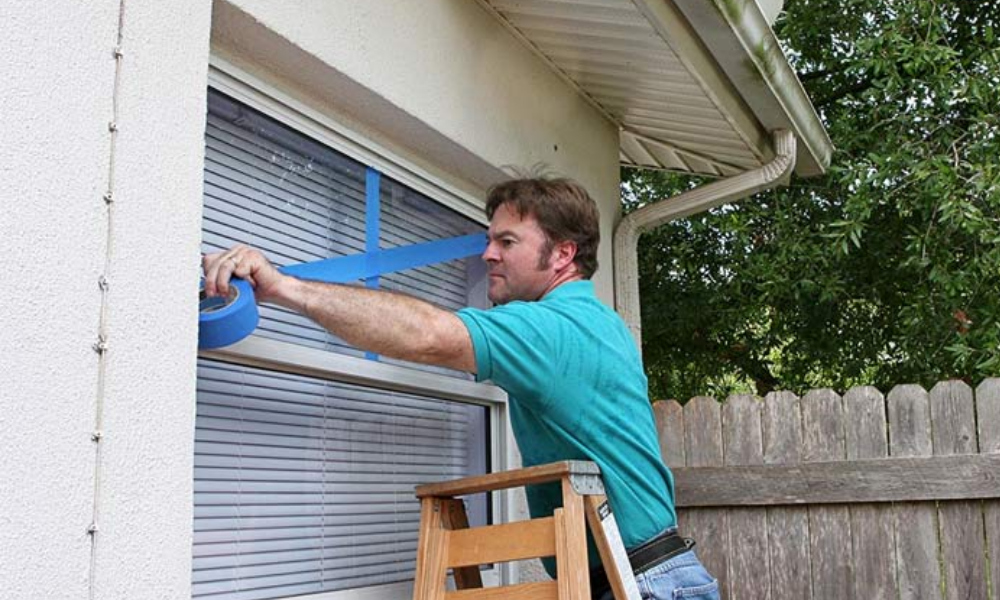Hurricanes are natural disasters that can occur in many parts of the world. They have been occurring for as long as records have been kept and will continue until we stop using fossil fuels. Hurricanes are classified on the Saffir-Simpson Hurricane Wind Scale, with Category 1 being the least intense and Category 5 being the most intense.
There are many things you can do to protect your home from the effects of a hurricane. The most important is to evacuate if instructed to do so by local authorities. If you must stay in your home, make sure you follow all the precautions mentioned in this article.
What Is a Hurricane?
A hurricane is a type of tropical cyclone. A tropical cyclone is a rotating, organized system of clouds and thunderstorms that originates over warm tropical waters and typically lasts for several days. They are classified into five categories on the Simplification Hurricane Wind Scale, Category 5 being the most intense.
Hurricanes are powered by the sun’s heat, which evaporates water from the ocean’s surface. The warm, moist air rises and the winds blow it in a circular pattern. The thunderstorms that form inside the hurricane feed off this energy and grow in intensity. As a hurricane nears land, it can lose strength if it moves over cooler water or encounters wind shear (a change in the direction and speed of the winds at different levels of the atmosphere).
What Is a Hurricane Watch?
A hurricane watch is when a hurricane is possible in the area, which means that you should prepare for a hurricane. A hurricane warning is when a hurricane is going to hit the area.
How Do Hurricanes Form?
A hurricane forms from a tropical storm. A tropical storm is a rotating, organized system of clouds and thunderstorms that originates over warm tropical waters and typically lasts for several days. Tropical storms are classified into four categories on the Saffir-Simpson Hurricane Wind Scale, Category 1 being the least intense.
Tropical storms are powered by the sun’s heat, which evaporates water from the ocean’s surface. The warm, moist air rises and the winds blow it in a circular pattern. The thunderstorms that form inside the tropical storm feed off this energy and grow in intensity. As the tropical storm moves closer to land, it can lose strength if it moves over cooler water or encounters wind shear (a change in the direction and speed of the winds at different levels of the atmosphere).
What Is the Difference Between a Hurricane, a Typhoon, and a Cyclone?
A hurricane, a typhoon, and a cyclone are all names for the same thing: a rotating, organized system of clouds and thunderstorms that originates over warm tropical waters and typically lasts for several days. The only difference is where they occur. Hurricanes occur in the Atlantic and northeastern Pacific oceans, typhoons occur in the northwestern Pacific Ocean, and cyclones occur in the South Pacific Ocean and the Indian Ocean.
What Is the Difference Between a Tropical Storm and a Hurricane?
A tropical storm is a rotating, organized system of clouds and thunderstorms that originates over warm tropical waters and typically lasts for several days. A hurricane is a tropical storm that has reached Category 3 or higher on the Saffir-Simpson Hurricane Wind Scale.
What Is a Category 1 Hurricane?
A Category 1 hurricane is the least intense type of Hurricane, and it has maximum sustained winds of 74-95 mph. These hurricanes usually cause some damage to buildings and trees but are not typically life-threatening.
What Is a Category 5 Hurricane?
A Category 5 hurricane is the most intense type of Hurricane, and it has maximum sustained winds of 156 mph or more. These hurricanes can cause catastrophic damage to buildings, trees, and power lines, resulting in loss of life.
How Do you Protect your Home from a Hurricane?
The best way to protect your home from a hurricane is to evacuate if instructed to do so by local authorities. If you must stay in your home, make sure you follow all the precautions mentioned in this article.
Following are the ways you can do to protect your home from a hurricane are:
- Close and lock all your windows- You don’t want the wind to blow your windows open and let in rain and debris. The Hurricane can also cause the windows to shatter, leading to injuries. Hurrican can cause much damage to your home, so it is necessary to protect your windows.
- Board up your windows– One way to protect your windows is to board them up. It will help prevent the wind from blowing them open and help protect against shattering.
- Trim or remove trees and branches– If there are any trees or branches that could fall on your home during a hurricane, trim or remove them. Having trees and branches fall on your home during a hurricane can cause severe damage.
- Put your belongings in a safe place- If you have any valuable belongings, put them in a safe place. You don’t want them to get damaged or destroyed during the Hurricane.
- Remove debris from your yard- If there is any debris from past storms, clean it up before the hurricane hits. Debris can become projectiles in high winds and can damage your home.
- Secure your roof- If any tiles are missing or loose on your roof, make sure to secure them before the hurricane hits. You can use roofing nails or roofing cement to do this.
- Install a storm shelter- If you live in an area prone to hurricanes, consider installing a storm shelter, and it will provide you with a safe place to go during the storm.
- Make sure your roof is in tip-top condition- One of the best ways to protect your home from a hurricane is to make sure your roof is in tip-top condition. If there are any loose tiles or shingles, replace them. Also, make sure your gutters and downspouts are clear of debris so they can properly drain water away from your home.
- Equip yourself with a standby electrical source- If you lose power during a hurricane, you will want a standby electrical source. It can be a generator or an uninterruptible power supply. Having this will help to keep your appliances running and will help to keep you cool or warm.
These are some of the ways you can protect your home from hurricanes.
What Should you Do During a Hurricane?
If you are in an area under a hurricane watch, make sure to monitor the latest forecasts and be prepared to evacuate if necessary. Evacuating is the best option if you are in an area under hurricane warning.
During a hurricane, you should:
- Stay indoors- The best place to stay during a hurricane is indoors. Stay away from windows and doors, and make sure to stay in a room on the ground floor.
- Monitor the weather- Make sure to monitor the latest forecasts and be prepared for changes in the storm’s path.
- Be prepared to evacuate- If you are in an area under a hurricane warning, be prepared to evacuate. Have a plan and know your route ahead of time.
- Shelter in place- If you cannot evacuate, make sure to shelter in place. Find a room on the ground floor of your home away from windows and doors. Stay inside until the storm has passed.
What you Should Not Do During a Hurricane?
There are some things you should not do during a hurricane:
- Do not go outside- The wind and rain can be very dangerous and cause serious injuries.
- Do not drive- Driving during a hurricane can be very dangerous. There are a lot of hazards on the road, such as downed power lines and debris.
- Do not use your generator indoors– Generators should only be used outdoors. If you use them indoors, they can release carbon monoxide, which can be deadly.
- Do not use candles- Candles can be a fire hazard and should only be used if there is no power. Never leave them unattended.
Conclusion
To protect your home from hurricanes, you can use plywood to cover the windows. You should also make sure you have enough food and water for at least a week in case of an emergency. To save power or avoid flooding, turn off all utilities and unplug electronics that are not necessary during this period. The most important thing is being prepared with an evacuation plan and having a safe place during the Hurricane. We hope that this article has been informative and helpful. Stay safe!










Leave a Reply